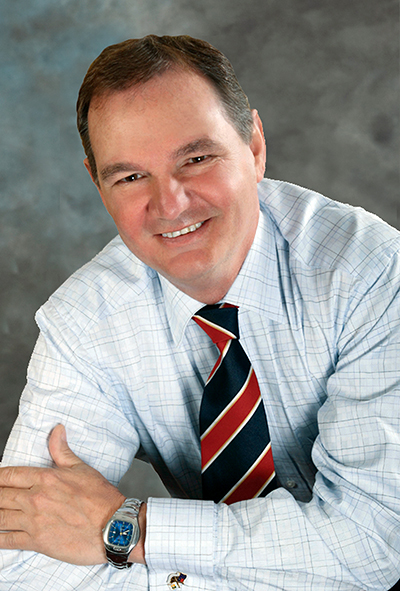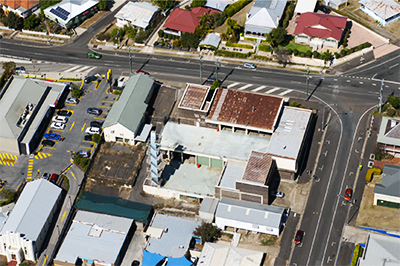Ipswich turns old fire station into a business hotbed
According to a report by Accenture for the City Initiatives for Technology, Innovation and Entrepreneurship (CITIE) group, delivered at the 2015 Asia Pacific Cities Summit in Brisbane, cities are hotbeds for developing innovative, fast-growth businesses. The City of Ipswich in Queensland is firing up that concept by creating its new business incubator in the former Ipswich Central Fire Station it now owns.
By Mike Sullivan
IPSWICH City Mayor, Paul Pisasale, has never been backward in coming forward – and he doesn’t mind taking the lead on what’s good for his city. So it comes as no surprise that Ipswich City Council is helping start-up businesses to find their feet – but it is surprising how much support the council is throwing behind local entrepreneurs and innovative early-stage businesses.
“It’s the way the world’s going and it’s the way the city is going,” Cr Pisasale said. “We are ahead of the game.
“You have got to look after your neighbourhoods and your early stage businesses. Incubators and technology is the way of the future.
“It’s where the future jobs are and where we are all heading … and if you don’t head there your city is going to be lost and won’t have the communication that is needed to take this thing forward.” 
The momentum behind the Ipswich incubator is what is revealing. The council has bought the old Ipswich Fire Station in the heart of its central business district and is re-fitting and re-purposing it as a hub for entrepreneurs. The complex will be named 1860, for the year Ipswich became a municipality.
But Ipswich is a smarter city than just re-purposing property – it is doing so in alliance with local business mentors and support services to provide the business development environment and skilling ‘software’ to go with the ‘hardware’ within the incubator.
The city has also had a long look at how other incubators are working around the world, especially taking a lead from the successful Chicago digital business incubator hub, named 1871. Chicago’s hub took its name not from the great Chicago fire of 1871, but for the innovation that came in the disaster’s aftermath.
DIGITAL RECORD
Ipswich is not making things up as it goes along – the South East Queensland city has a substantial record for innovation and hi-tech business development in its own right, including Australia’s largest aerospace precinct at Amberley.
In 1994 the city was also the first in Australia to set up its own internet service provider (ISP), Cr Pisasale said. Ipswich’s thriving satellite city of Springfield was the one of the earliest developments to provide for broadband connectivity for all new homes and its commercial district. The Polaris Data Centre development at Greater Springfield was also one of Australia’s first major commercial data centres.
“You have got to go back to 1994 when the city became the first one in Australia to set up its own ISP,” Cr Pisasale said. “No-one had even heard of the internet or even had an e-mail address.
“We went down that path, because we could (even then) predict that the jobs of the future were in technology. Then you had iTel and the other things we got involved in. This is the next step in that journey.”
He lamented the fact that the National Broadband Network (NBN) had been mired in political and regional arguments over the technical aspects of the roll-out.
“What they should be talking about is what it is going to do to enhance your community or your city,” Cr Pisasale said. “So that’s where we are heading. We know the power of that, making your city able to communicate anywhere in the world and being able to run your business from it.”
The 1860 business incubator program is just one aspect of the lead Ipswich is taking in helping to foster business development in the global digital economy. Ipswich also this year appointed Matthew Schultz as its first city digital officer and he has been instrumental in helping to establish the incubator.
Cr Pisasale said 1860 was being established as a both a physical and online hub, but with vital business local networks engaged in its formation and operation.
“Councils are very good at giving out sporting bursaries and cultural bursaries, but what this is all about is giving out those bursaries to pick up the entrepreneurs in your community,” Cr Pisasale said. “It will pick up start-up businesses that you can nurture and help survive with mentors.
“And finally it will help to train people out there who are so busy being busy that they don’t know how to take their businesses forward – and if they don’t do this, they’ll fold.”
Cr Pisasale, who wears an Apple Watch primarily to receive council and community messages, said the city was well poised to reap the benefits of the digital age because the council was already attuned to its potential.
“It’s about how you embrace technology,” he said. “We are seeing it – not only in the jobs that are being created, but also in the age demographics of the city.
“The state average is 36 (years) and we are 32 and declining – so young families are coming into this city and becoming involved. The young people, they get it.
“The City of Ipswich is going to be known as a city of innovation now. The key for us is that there are no more boundaries,” he said, remarking that Ipswich was recently voted in the top seven Most Intelligent Communities in the world by the Intelligent Community Forum in New York.
He said it proved Ipswich’s challenges and opportunities were no longer focused in Australia but “we are worried about China and Taiwan and Hong Kong and the US and the UK …”
Cr Pisasale said the 1860 hub would energise the Ipswich business community.
“It’s really the Olympics of information. The Olympics of technology,” Cr Pisasale characterised the business development environment. “We see them (Ipswich entrepreneurs) running the Olympic 100m … and someone saying that idea came out of Ipswich.
“More importantly, the idea did not go overseas and come back. I want to sell it to overseas, but I want to make sure the nurturing place was Ipswich and Australia.”
ends

 How to resolve AdBlock issue?
How to resolve AdBlock issue?